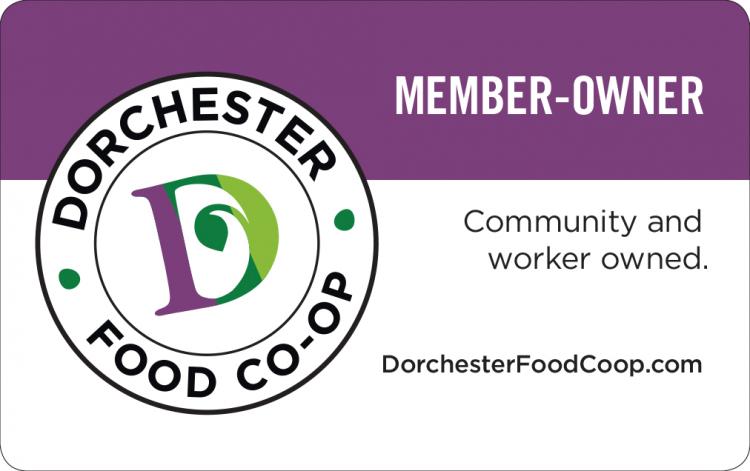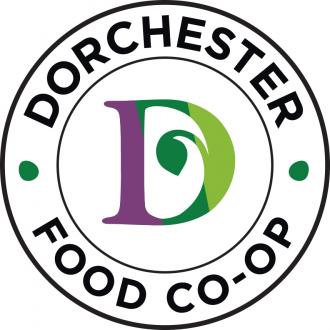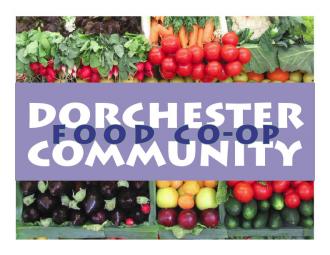Establishing a Stronger Brand




In 2015, Food Co-op Initiative (FCI) became aware of a pattern: The strongest developing food co-ops we worked with also tended to be some of the best-branded ones. Was it simply that the strongest development teams recognized the importance of a strong brand and carried it through everything they did? Or could a powerfully executed brand actually bring greater success to a co-op in the form of more owners, more buzz, and more partnerships?
Some of the best examples of a startup brand were projects such as Renaissance Community Food Co-op of Greensboro, N.C. and Green Top Grocery of Normal, Ill. While both had strong leadership almost every step of the way, it could easily be argued that their consistent and well-executed branding created excitement that attracted others and gave the project a sense of “realness” before its store was open.
Rebranding test
We decided to test, by offering a grant, the following hypothesis: A stronger brand identity leads to more owner buy-in and momentum. In the summer of 2016, we approached the Dorchester Food Co-op (DFC) to be the subject of our grant. Dorchester is the largest neighborhood in Boston, Mass., and arguably its most diverse. DFC is planning for a 6,000 sq. ft. store, based on a hybrid consumer/worker ownership model.
DFC was a terrific fit for what we hoped to examine, meeting our three criteria for the project: the co-op was incorporated and was developing; and it had strong leadership but a weak brand identity.
A plan and a team
A rebrand can mean many things. But we had a specific plan for this grant and test of our hypothesis, which the co-op enthusiastically agreed to. The parameters were:
- Formation by DFC of a core team that would be the final decision makers on the new brand;
- An on-site identity exploration process with the core team, led by the graphic designer;
- Creation of a plan to capitalize on the rebrand, with DFC agreeing to invest in a full launch of the new brand.
Together, we assembled a team for the rebranding project: • Darnell Adams, project manager, as project lead on the DFC team; • DFC rebrand team, made up of outreach committee members and board members; • Melanie Shellito of Artezen LLC, a professional in branding and design ([email protected]) and a founding member and board member at an Illinois startup, Green Top Grocery; • Joy Rust, food co-op marketing specialist and a member of CDS Consulting Co-op.
DFC’s rebrand team, says Adams, “was formed from the members of our communications and marketing committee as well as from a small pool of active member-owners and board members who were motivated to be part of the process. We settled on eight people who were committed to the rebrand process.”
Unifying the vision
In October of 2016, Melanie Shellito flew into Boston to meet with the DFC core team in person. Adams took Shellito on a tour of Dorchester, introducing her to the unique community DFC serves. Shellito then met with the DFC core team for four hours to work through multiple activities with them to distil their co-op’s identity. The trip gave Shellito a chance to get an in-person feel of DFC and the community it serves before creating a visual identity for the co-op. It also gave her a chance to build trust with the DFC team.
“Having the core team establish a solid framework for the brand identity is essential,” explains Shellito. “All the decision-makers need to be in that room or have empowered those that are. Working together on specific exercises, the team distills their co-op’s key attributes or, as often happens, uncovers areas of disconnects. Valuable discussions happen while resolving the tough questions. But from that, a unified vision is established, so the end result is a very intentional and relevant brand.”
One of the vision activities—“Who We Are/Who We Aren’t”—uses a process Shellito created to help groups put words to ideas and find common ground about their vision. With a deck of cards, each bearing a word that is strongly evocative of an identity, Shellito leads the group through those words—figuring out which ones align for them with the vision they have for their co-op. The group then shares individual results and finds the words where they had the most overlap.
Those words can inform the design, font choices, even the colors used in the brand. The resulting words from the process that the core group chose to define the co-op were: progressive, relatable, respectful, imaginative, welcoming, realistic, trusted, everyday, multi-faceted.
Three potential brands were created for DFC. After a couple months of back and forth between Shellito and the co-op’s core team, a final design was approved. This was a major step in the process, certainly. But without a solid launch plan for the new brand, its true potential for creating excitement and momentum for the co-op would not be realized.
Preparing to launch
As project manager, Adams had also engaged in planning the critical next step of launching the new brand. To create a new brand for your co-op and not have a detailed launch plan leads to the loss of a significant opportunity for building owner engagement and community excitement. It also can actually be divisive if the new brand is launched without owners being effectively shown how the new brand is rooted in their values.
“Startup food co-ops should celebrate a rebrand project. Rebranding is a big step and demonstrates to the community and their member-owners how committed the co-op is to their project,” shares Joy Rust, co-op marketing specialist. Rust worked one-on-one with Adams to understand what launch tools might work best in their community and how to make a big splash on the co-op’s modest budget.
“By strategically rebranding and planning a new brand launch, a co-op has the opportunity to excite their community and build strong brand recognition,” says Rust. “Capitalizing on a re-brand with a formal launch plan will ultimately increase participation and member growth for a startup food co-op.”
The launch plan included everything from website updates to social media educational posts to t-shirts, banners, a launch party, and an owner input process on their co-op’s official tagline.
“We wanted to create an input process that helped our owners connect to the new brand through the creation of a co-op tagline, which we’d not had before. The communications and marketing committee generated three taglines owners could choose among to keep the process streamlined and effective. At the launch party, attendees voted with stickers, which brought an interactive element to the event.” The resulting tagline—Our community, our market—is now the official DFC tagline and is used in all the co-op’s materials.
DFC launched their new brand at the beginning of March with teaser social media and a sneak peek party event, then the update of their online presence. At the time of this writing, the results from the rebrand are still coming in and being measured. “Would I call it a success? Absolutely,” enthuses Adams. We got five new owners at the launch party and sold out every t-shirt we’d ordered, including the one on my back because an owner wanted it so much and it was the last one left! I believe that we’re going to continue to see new energy in DFC and in our ownership growth going forward.”
Why rebrand?
When are rebrands a powerful tool? Says Shellito, “There are multiple reasons a co-op, startup or otherwise, might take on a rebrand.” Here are a few reasons that she encourages co-ops to consider:
• Competitive difficulties: “A loss in market share can be an indication it’s time to revisit your brand to better express who you are to your community, to express that differentiation.
• Shift in focus: “Your current brand may no longer represent who your co-op is and what your owners want from it. This often happens through the startup development process and also over the years a maturing co-op serves its community. As your mission evolves, so must how you communicate it through your brand.”
• Past transgressions: “A rebrand can be a chance to reboot your image to the community after a major stumble. It signals a fresh start and a refocus.”
• Mistakes in original branding: “The logo and early marketing are often created by a startup long before they have accurately identified their audience or before there’s a budget to get it done professionally. This is a great reason to rebrand, particularly as you look ahead to branding that works for an operating retail store.”
The launching process
• Have a plan: following a written outline that covers all areas of marketing (social media, swag, website, table displays, etc.) is key to a successful launch.
• Tell the story: it’s critical that you know why the new brand really expresses the core values of your co-op. Share the details of why the colors were chosen; why that font(s); how the look relates to your mission, vision, and organizational personality. Clarity about your mission must come before a rebrand and then be expressed through the brand and launch process.
• Be prepared for pushback: a common mistake co-ops make when launching something new, whether it be branding or a change to their bakery program, is not being prepared to confidently and positively own the change in the face of doubt from the inevitable small-but-vocal group of owners. If you have tied the rebrand into the co-op’s values every step of the way, be ready to speak to that with confidence without overreacting to the opinion of a few individuals. ¨







